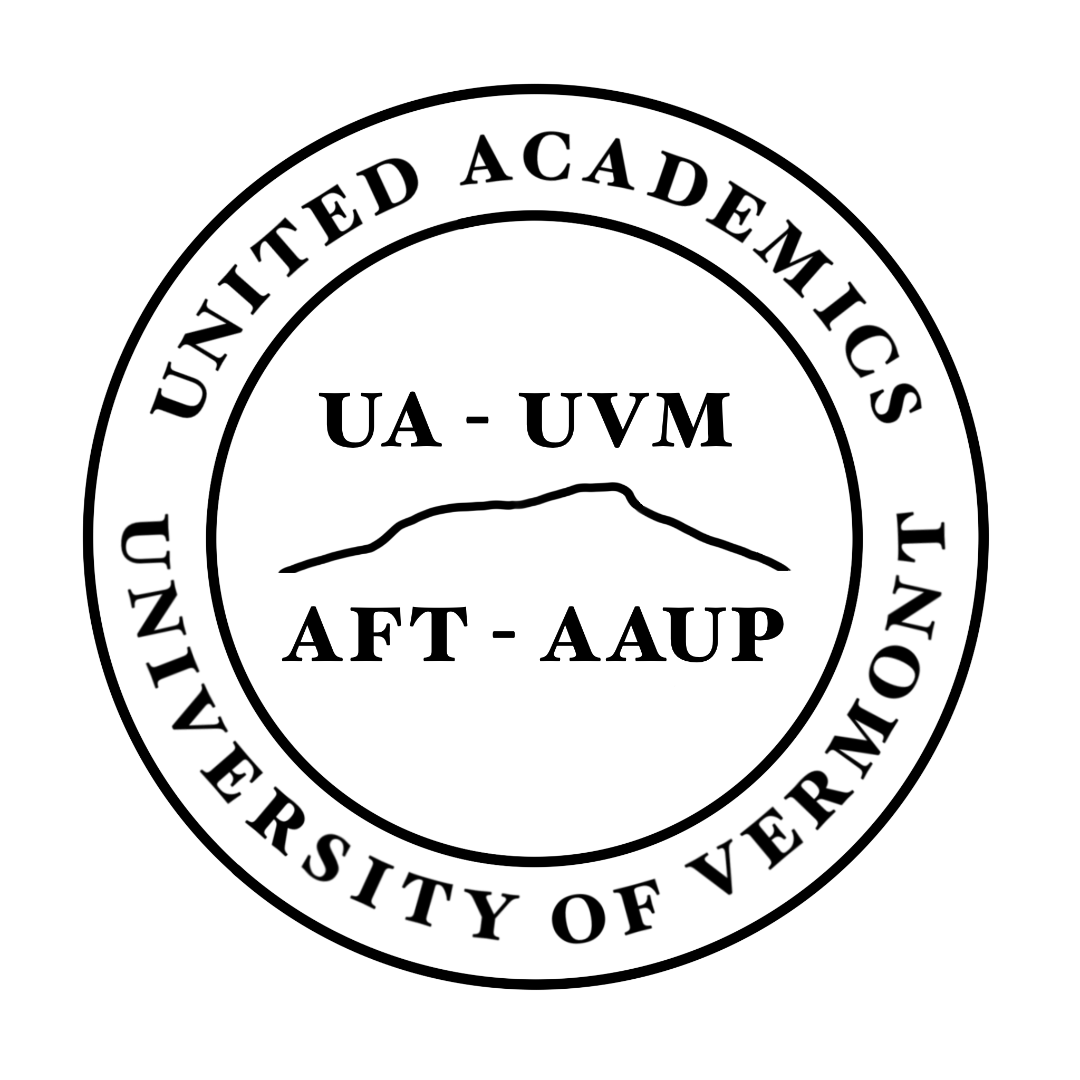Dear colleagues,
This week I have few things to report, including news about fact finding, an announcement of a happy hour, and a few comments about budgets, numbers, and their interpretation.
The negotiation team is working very hard on preparing for fact finding, the first hearing being this Monday, Feb. 12th. Fact finding is a process under Vermont Labor Relations law where each sides presents information to an agreed upon neutral professional intermediary, a fact finder, who then writes a report suggesting solutions to the differences between the parties. Interestingly, close to a year after introducing it, last Friday the administration’s lawyer informed us that they no longer wished to pursue their proposal to modify the contract’s policy on faculty intellectual property in coursework. (They have not said why they dropped it, but UA has always taken the position that their proposal was draconian and unnecessary.) That means the only thing left to discuss in fact finding is salary.
On the other end of the formality spectrum, please Join your colleagues at another United Academics Happy Hour, this Friday, February 9 from 3:00-5:00 p.m. at Brennan’s on the first floor of the Davis Center. We will provide snacks, and your first drink is on us. We’d love to see you there. All are welcome. Meet colleagues from across campus, get to know you union and representatives, or just enjoy a beverage with friends.
I also need to report that AAUP’s Jamie Daniels has had to postpone her visit with us, originally scheduled for this Thursday and Friday; she has a bad flu. We will try to reschedule for later in the semester so that she can visit to discuss with us how to better engage and be more responsive to faculty in these tough times for unions. She was originally scheduled to meet with the Delegates Assembly at this Friday’s meeting; that meeting will still take place.
Thanks to everyone who attended last Thursday’s “Open the Books” forum; it was smart, informative, well-attended, and stimulating. (We hope to have powerpoints and a transcript online before long.) The forum generated some media coverage and a number of responses from people around campus, for which I am always thankful.
Based on some of those responses, I do want to add a few points of clarification: First, just to be clear, UA has not taken a public stand against STEM or STEM buildings, and takes the general position that money that goes to faculty, research, and teaching in all fields is a good thing. We support STEM research and teaching. This was said at the forum, but perhaps could be said more often and more clearly.
Second, when we publish numbers about costs of various things at UVM, those numbers are intended as symptoms of underlying long term trends. (The long term trends were elaborated quite elegantly in some of the presentations at the forum.) I’m afraid some folks take numbers that we have put on posters and other places and then run with them in wrong directions, the two most common being 1) “UVM administrators are obviously corrupt and make constant self-serving and wasteful decisions,” and 2) “I know the story is more complicated than that and so therefore the union doesn’t know what it’s talking about.” Neither of those interpretations are accurate or fair, but I worry they happen too often.
So for the record, the argument is not simply that the bridge to the library should not have been built, or that the university could simply take money from short term funds and spend them on salaries, which of course we understand are ongoing expenses. We generally use numbers to start a discussion, not as arguments in their own right. No single expense is necessarily a bad one, but the point is that in aggregate, over the years, these continued types of expenses whose necessity is not ironclad illustrate that the university is not poor, and suggest that a modest, thoughtful adjustment in priorities would gradually shift more of the money toward the core mission of teaching and research.
Please keep in contact. There’s always more to discuss.
Best,
Tom Streeter
President, United Academics
thomas.streeter@uvm.edu
United Academics is the union of full- and part-time faculty at University of Vermont, with over 700 members from departments and colleges across the campus. We represent faculty in negotiating and upholding contracts, and we advocate for fair labor practices within and beyond our academic community. We are a member-led union committed to academic freedom, shared governance, social and environmental justice.
Get to know us at www.unitedacademics.org, and United Academics on Facebook
